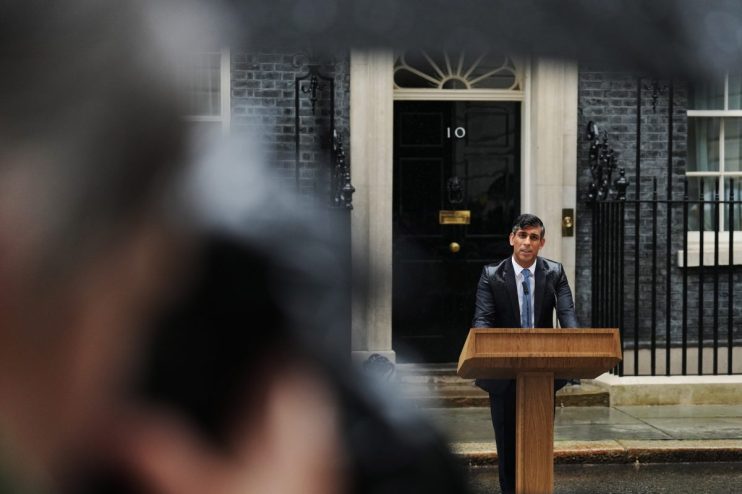The Notebook: How to sum up this election? The politics of ennui

Where the City’s movers and shakers get a few things off their chest. Today, Neil Bennett, global co-CEO of H/Advisors, takes the Notebook pen to talk about the defining feature of this election: ennui
The politics of ennui
There’s an old anarchist slogan that runs: “it doesn’t matter who you vote for, the government always gets in”. Years ago, enterprising activists would scrawl it on the walls at my university. They may well have had this election in mind.
Britain faces huge structural challenges: a stagnant economy, crumbling national infrastructure, bloated national debt, high taxes, emboldened enemies and an ageing population among many others. But our two main parties have chosen to duck all these issues and instead slug it out limply with soundbites and gesture politics.
In the red corner we have a complacent Labour Party heading towards victory, talking about growth without any clear idea of how to achieve it, and ducking all these difficult issues. In the blue corner the Conservatives, who have given up any pretence of economic discipline to talk about an undeliverable national service plan and give out bribes to pensioners that the country can’t afford.
Britain in 2024 is like one of the so-called zombie companies after the financial crisis. It is caught in a debt trap, with more than £2 trillion of public debt, unable to fund investment or even operating costs properly.
What is needed, like those businesses, is a radical reset. Ideally this would include:
- Significant one-off additional taxes to reset the debt burden and generate funds for national investment and renewal (the equivalent of a national rights issue)
- Substantially lower corporate taxes to stimulate business investment and attract overseas investment.
- Major fiscal incentives to encourage older people to return to work or stay in work longer and delay taking their pensions (in return for an end to the ruinous triple lock)
- A radical reduction in bureaucracy and regulation to improve productivity in both the public and private sectors and ambitious use of technology to make all these processes simpler and quicker. Ideally this would be accompanied by a relentless cull of public sector employment to reduce costs and redirect skilled workers into the productive sectors of the economy.
All of these would be far harder to achieve than written about in a column. They would also no doubt be deeply unpopular, which is why I would no doubt be an abject failure as a politician.
But surely someone in our political firmament will one day have the courage to address the core issues we face and not be content to fiddle around the edges? It just doesn’t look likely before 4 July.
EasyNonsense
A few weeks ago, my firm H/Advisors held an excellent discussion panel called ‘Why Can’t Business Talk Proper’. It was a lively discussion about the awful corporate-speak that infects most businesses and means that their customers and employees simply don’t trust them.
Even as I write, there is a glaring example in front of me. EasyJet has announced a four-hour delay to my flight from France. The official reason on their website? “Some changes to our flying programme resulted in your plane being changed for your flight today”. This, it turns out, is complete corporate BS.
The real reason (after conducting some swift investigative journalism among the cabin staff) is that the co-pilot hasn’t shown up, and they can’t contact him, so the plane can’t take off.
When will companies learn that if they present people with mendacious nonsense like this, they won’t trust them. At our session Rupert Soames, President of the CBI, landed the killer blow when he said that corporate-speak is almost always used to conceal the truth.
It isn’t always easy to be honest, but it is far better than wrapping a lie in gobbledygook.
A reading recommendation
The Golden Road by William Dalrymple (published 5th September)
I am delighted that H/Advisors is sponsoring William Dalrymple’s slot at the Chalke History Festival later this month, and equally delighted that we are going to get another helping of Indian history from him later this year having enjoyed his last book The Anarchy about the East India Company so much. This time he promises to tell us how India shaped the modern world. You can be sure I will be quizzing him about it when I see him.
